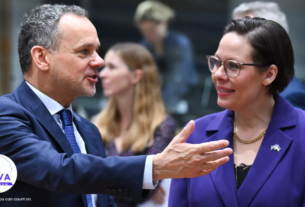The UK Ministry of Defence (MOD) is redirecting billions in defense procurement from the United States toward European partners, signaling a strategic pivot aimed at strengthening regional industrial ties and reducing reliance on American suppliers.
According to new research by Tussell, a procurement analytics firm, the MOD has significantly increased contracts awarded to European defense companies over the past two years. The shift comes amid growing political pressure for economic sovereignty and strategic autonomy following Brexit and evolving geopolitical threats on the continent.
“This isn’t just about diversifying supply chains it’s about reshaping alliances,” said defense analyst Dr. Rachel Keane. “Europe is stepping up, and the UK is responding to that momentum.”
Traditionally, the UK has leaned heavily on US contractors for cutting-edge technology, including aircraft, missile systems, and electronic warfare platforms. But recent deals suggest a rebalancing: British procurement is increasingly flowing to firms in France, Germany, Italy, and Sweden, many of which are co-developers in the Future Combat Air System (FCAS) and other collaborative European defense initiatives.
Key contracts have recently been awarded to:
- Airbus Defence and Space (Germany/France) for drone integration,
- Leonardo (Italy) for electronic warfare systems,
- Saab (Sweden) for radar technology.
This pivot is also driven by a desire to keep more defense spending within NATO-Europe, amid concerns that US priorities could diverge from European security needs especially in the wake of the 2024 US elections and shifting transatlantic dynamics.
MOD officials emphasize that the UK remains “committed to transatlantic defense cooperation,” particularly through the F-35 fighter jet program and intelligence-sharing under the Five Eyes alliance. However, the new direction reflects a “pragmatic alignment” with EU defense economies, particularly those participating in joint European Defence Fund (EDF) projects.
“Our objective is to build resilient, homegrown capabilities while maintaining interoperability with key allies,” said MOD procurement minister Harriet Boswell.
Critics warn that excessive distancing from the US could slow access to breakthrough defense tech and weaken key bilateral programs. But supporters argue the move empowers British industry, enhances supply chain security, and encourages greater strategic independence.
This trend is expected to continue into 2026 as the MOD prepares for a comprehensive review of its Integrated Procurement Strategy, focusing on regionalized resilience, sustainability, and cost-efficiency.




